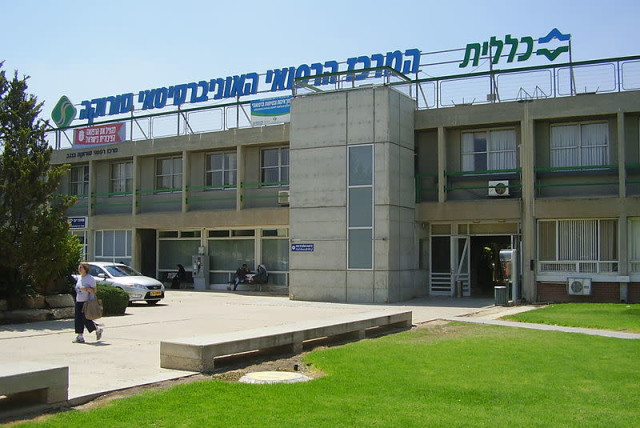Soroka ophthalmologists urge IDF soldiers to wear protective goggles

Doctors at Soroka have treated more than 20 soldiers who suffered harm to their eyes in various degrees of severity.
Ophthalmologists at Soroka-University Medical Center in Beersheba who have been treating soldiers wounded in the war against Hamas terrorists have produced a short video to raise the military’s awareness of the need to wear protecting goggles at all times to prevent harm to the eyes during combat.
Dr. Liron Kravitz and Dr. Ana Bunin of the ophthalmology department say in the video that in these past weeks, they have treated more than 20 soldiers who suffered harm to their eyes in various degrees of severity; one soldier even lost his sight. The injuries are caused by either blunt or penetrating objects.
The damage is caused by blast waves from weapons and from shrapnel, they said. The goggles should be worn all the time, like eyeglasses. They pointed out that the US Army reduced eye injuries during combat from 16% to half a percent by ensuring that soldiers wore protective goggles.
Soldiers start wearing goggles more after video
Particularly moving was a message received now by Kravitz, one of the doctors featured in the video, from a commander in the field who wrote to her that thanks to the video, he and his entire company began wearing protective glasses regularly.
Dr. Erez Tsumi, head of the ophthalmology department, added: “We treated the wounded whose eyes were spared due to the fact that they were wearing protective glasses. It is appropriate to treat these glasses as you treat a helmet or a ceramic shield, and make sure to wear them as much as possible, thus reducing eye injuries that can cause a preventable but significant long-term disability.
Jerusalem Post Store
`; document.getElementById("linkPremium").innerHTML = cont; var divWithLink = document.getElementById("premium-link"); if (divWithLink !== null && divWithLink !== 'undefined') { divWithLink.style.border = "solid 1px #cb0f3e"; divWithLink.style.textAlign = "center"; divWithLink.style.marginBottom = "15px"; divWithLink.style.marginTop = "15px"; divWithLink.style.width = "100%"; divWithLink.style.backgroundColor = "#122952"; divWithLink.style.color = "#ffffff"; divWithLink.style.lineHeight = "1.5"; } } (function (v, i) { });

